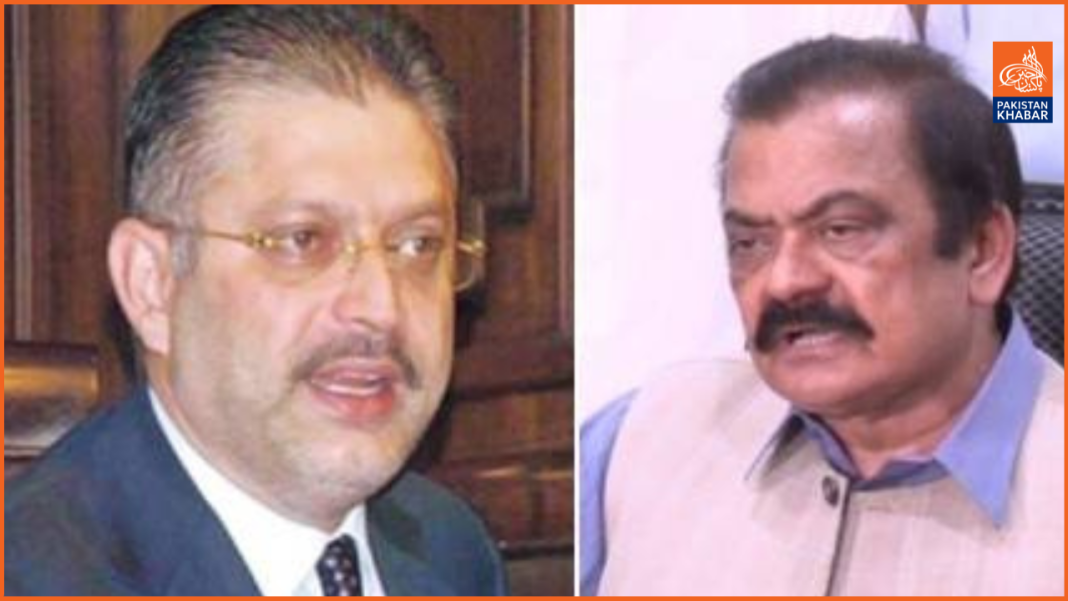Key ally of the ruling Pakistan Muslim League-Nawaz (PML-N), the Pakistan Peoples Party Parliamentarians (PPPP), has set a clear line in the sand: shelve the project, or risk the collapse of the federal government ever since the debate on building six canals on the Indus River erupted.
The urgent question remains: is the PPP’s warning only political posturing, or is it really ready to pull the plug as political tensions grow between the two main legislative forces where the PPPP assisted PML-N cobble together a government at the Centre?
For now, experts still disagree.
Analysts contend that the future of Prime Minister Shehbaz Sharif’s government now depends on backchannel negotiations – started on April 20 – and the impact of influential, behind-the-scenes stakeholders given the PPPP and PML-N locking horns over water rights.
Strong doubts regarding the canal project, which seeks to satisfy the irrigation needs of the Green Pakistan Initiative (GPI) in the Cholistan desert, have expressed by the PPP These issues have remained unresolved since February 15’s project inauguration by Punjab Chief Minister Maryam Nawaz Sharif and Chief of Army Staff (COAS) Gen Asim Munir.
Both parties have regularly participated in what many characterize as “fixed battles,” political theater meant more for public optics than genuine results since the coalition’s founding.
But PPP Chairman Bilawal Bhutto-Zardari’s most recent ultimatum in Hyderabad broke clearly from the script. He clearly urged the government to stop the initiative or face losing PPP backing, therefore plainly threatening to bring the already precarious federal system to its knees.
Before the issue spiraled out of hand, PML-N supremo Nawaz Sharif and PM Shehbaz quickly directed party officials to start communication. Talks were explicitly scheduled.
Still awaiting is the first meeting between both sides.
Still, experts view the PPP’s disobedience as more about self-preservation than about coalition dynamics. Sindh is still the last stronghold of the party, a redoubt it cannot afford to lose even with its national footprint much lowered.
President of the Pakistan Institute of Legislative Development and Transparency (PILDAT), Ahmed Bilal Mehboob, and journalist and policy expert Raza Ahmad Rumi both agree that betrayal on water rights might destroy PPP in its heartland and that they cannot afford.
Mehboob pointed out that a party that previously controlled the federation and all four provinces finds itself confined in Sindh. The province is the power foundation of the party; any danger to it is a red line for PPP, he pointed out.
He pointed out that PPP might or might not have first shown support of the Cholistan canals project.
Still, the tide has changed. The rise of a strong anti-canals campaign in Sindh has bound the party’s hands and made it challenging for it to give its opponent in Sindh a window of opportunity to grab its final stronghold.
Mehboob claimed, “PPP will go to any extent to convince PMLN and the establishment to do away with or at least deferral the canals project,” adding “but if it can’t succeed, it may have to dissociate from the support to the federal government”.
Rumi seconded Mehboob to the degree that the party first approved the canals project, pointing out that as it snowballed into an issue of Sindhi national identity, a U-turn was unavoidable even though it first granted the project the green light.
The party changed its original stance and became part of the public movement on the matter.
That said, Rumi added a disclaimer: given its present comfort level in terms of power-sharing with both the establishment and PML-N, PPP is unlikely to actually leave the alliance in Islamabad in spite of the hoopla.
He pointed out that the administration needs the support of its main ally to survive, hence the PPP most surely has the key to toppling this government. “But it should be emphasised that the establishment put together the federal coalition”.
And any adjustment will be guided by them, the analyst underlined.



